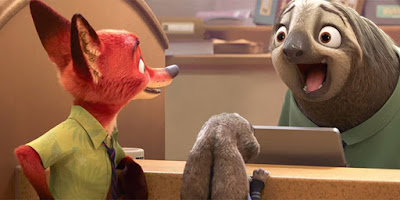If Best Pictures are not enough to wet your appetite for this weekend's Academy Awards, here are some other nominated films that I have reviewed just for you:
Nocturnal Animals (Best Supporting Actor)

Amy Adams and Jake Gyllenhaal, two of Hollywood's biggest and most talented stars, star in this meta-thriller. It's dark and uncomfortable but features some of the best performances of its cast's careers. Aaron Taylor-Johnson is nigh on unrecognisable, whilst Michael Shannon has received an oscar nod for his performance. Tom Ford's screenplay (based on Austin Wright's novel) is electric, jumping back and forth between reality and the novel 'Nocturnal Animals' within which the main action takes place.

The screenplay is incredibly clever, taking what is in essence a home invasion narrative, and reversing it. Instead of being trapped in a house, Gyllenhaal's Tony and his family are trapped out in the open by a group of psychopaths. The tension could be cut with a knife throughout this entire side of the film which takes place inside a novel being read by Amy Adam's character, Susan, whilst she struggles with her relationship and career in reality. Gyllenhall really gets a chance to shine in his dark narrative but he also plays real life ex-partner of Susan, providing him the opportunity to express real range.
Life, Animated (Best Documentary)
A heart warming documentary Life, Animated follows Owen Suskind, a boy with autism who, struggling to convey how he was feeling, turned to Disney movies where scenes were more applicable.
Owen's joy and passion for animated movies is contagious; he is excitable and likeable, running an extra-curriculum high school club to analyse Disney movies in which he and his classmates can look at what the movies can teach them and how they might be able to apply these lessons to their own life. It's a lovely and joyful film, but it is outshone by the documentaries that are trying to enlighten end engage in social discourse. Alongside the likes of 13th and Fire at Sea, Life, Animated lacks any real depth. It's educational and insightful, but ultimately forgettable.
A Man Calle Ove (Best Foreign Language Film, Best Hair and Make Up)

It's not often that a film opening with a man attempting suicide on multiple occasions turns out to be hilarious, but A Man Called Ove is a joy. It's a moving drama where life keeps getting in the way of Ove's death, and it is full of comedy and heart.
At first, it's unclear who Ove is or why he is (or appears to be) as grumpy as he is, but as the film goes along and more information is revealed, more and more meaning and revelation is found. In the end, there's a sense of community overcoming the pain of the past despite the slightly underwhelming and depressing conclusion. A Man Called Ove is arguably the best thing to come out of Sweden since Abba.
Sully (Best Sound Editing)

For most of us, the miracle on the Hudson was little more than an incredible news story, one pilot's heroic actions saving all of his passenger's lives. But we don't know the investigations that happened behind the scenes; we don't know about the nightmares and the marital stress. Sully is here to pick up what the news left out.

A remarkably good film for what it really is - a few depositions and a court case, interspersed with memories from the crash landing. But Todd Komarnicki's screenplay is so well handled by Clint Eastwood, that there is constant suspense. We build up one interrogation by the corporate bosses to boiling point before jumping back in time and providing some answers. Tom Hanks and Aaron Eckhart have amazing on screen chemistry too, making all the easier to root for the pilots even when everything seems against them. The film is flawed in some respects, for example, the corporate bosses who are intent on pinning the crash on Sully's (Hanks) poor judgement, are archetypal bad guys - they don't seem to want answers, they appear to have a malicious and targeted set of motives.
The Red Turtle (Best Animation)

Sometimes, words are not needed to tell a great story. Take The Red Turtle as a good example. Not a single word is spoken, though there is a little yelping at points, and despite this, the film is a huge success. The characters, simply designed though they are, are emotive and their expressions and body language do the story telling in the absence of words.
Once you can get over the slightly bizarre concept of turtles becoming human, The Red Turtle is a bold yet understated film. It is not flashy or showy, its simple 2D animation done to an excellent standard. It's short, simple, and sweet. Think Castaway but more gentle; you still won't want to be stranded on a desert island though...
Deepwater Horizon (Best Visual Effect, Best Sound Editing)

For a film nominated only in technical categories, Deepwater Horizon has been deeply under represented. This is a film that uses every element of the medium to create a living nightmare, the camera ducks and dives to cause disorientation, the sound is at full volume to immerse the viewer in the panic onboard the Deepwater Horizon.
This is a disaster movie by every sense of the word and the horrible thing is it is real. BP really were negligent in their actions and Peter Berg does not sugarcoat the situation. It succeeds where Sully failed by providing the bosses with a motivation for their interference: money. This is an unpleasant film but an important one.



























